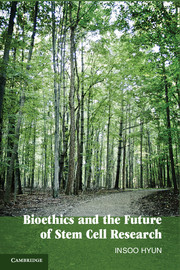7 - Human Trials
Testing Stem Cell–Based Biologics in Patients
Published online by Cambridge University Press: 05 May 2013
Summary
A trial may be broadly defined as an organized process of testing or examination to determine whether something is or is not the case, be it a person’s guilt or innocence (criminal trials), an athlete’s qualification for competition (time trials), a ship’s seaworthiness (sea trials), a medical intervention’s safety and efficacy (clinical trials), and so forth. Presumably, the outcome of a trial is unknown from the start. Hence the need to have a go at an assessment (the term trial comes from the Anglo-French trier – to try). At the beginning of a trial there is uncertainty. At the end, it is hoped there will be less uncertainty. Any marginal gain in assurance is dependent on the reliability and objectivity of the trial in question.
Each of these points is plainly obvious to anyone who entertains the general notion of a trial. To these simple observations I add a few more in this introductory section. Together, these commonly held understandings provide us with an initial framework for thinking about the ethics of stem cell–based clinical trials, which is the focus of this chapter.
- Type
- Chapter
- Information
- Bioethics and the Future of Stem Cell Research , pp. 155 - 185Publisher: Cambridge University PressPrint publication year: 2013
- 1
- Cited by



